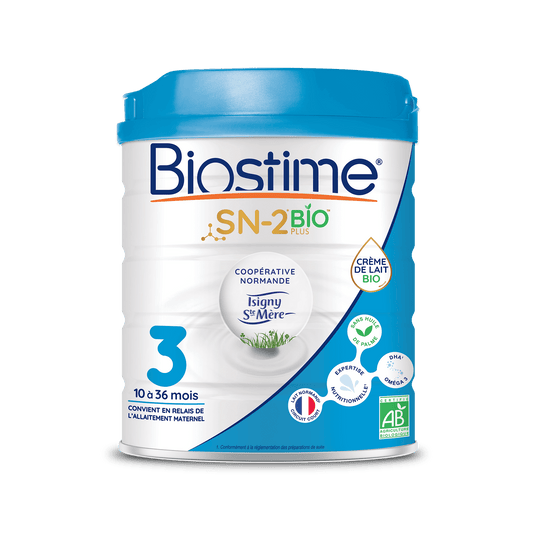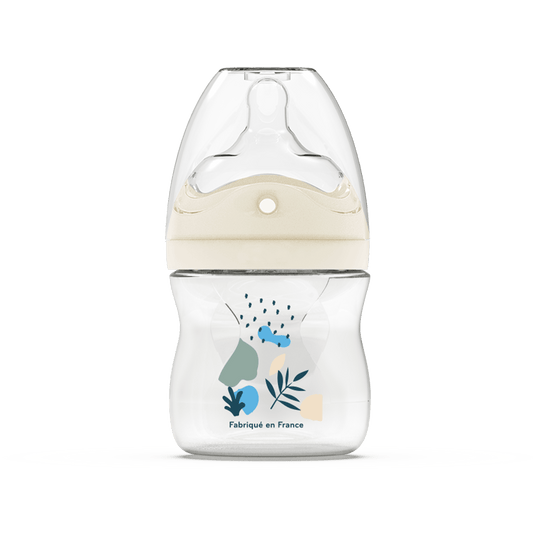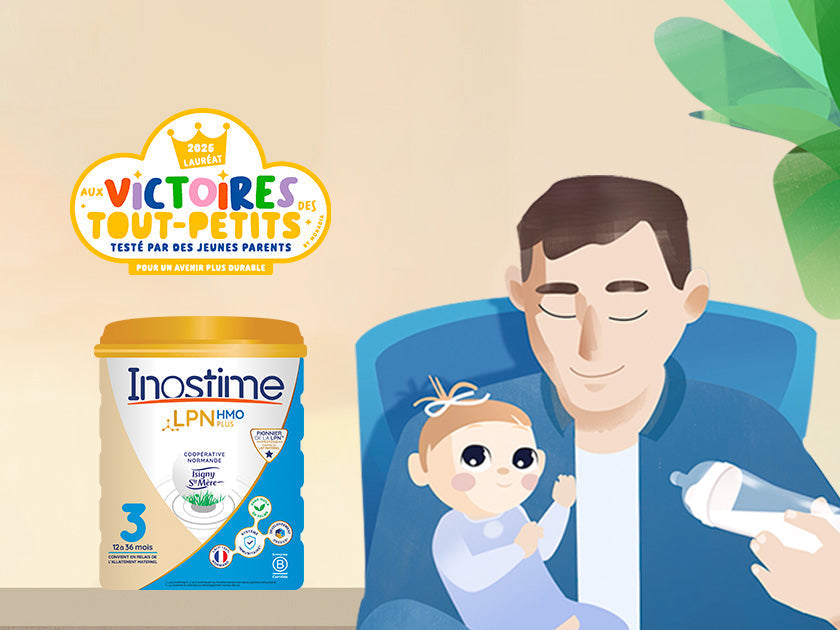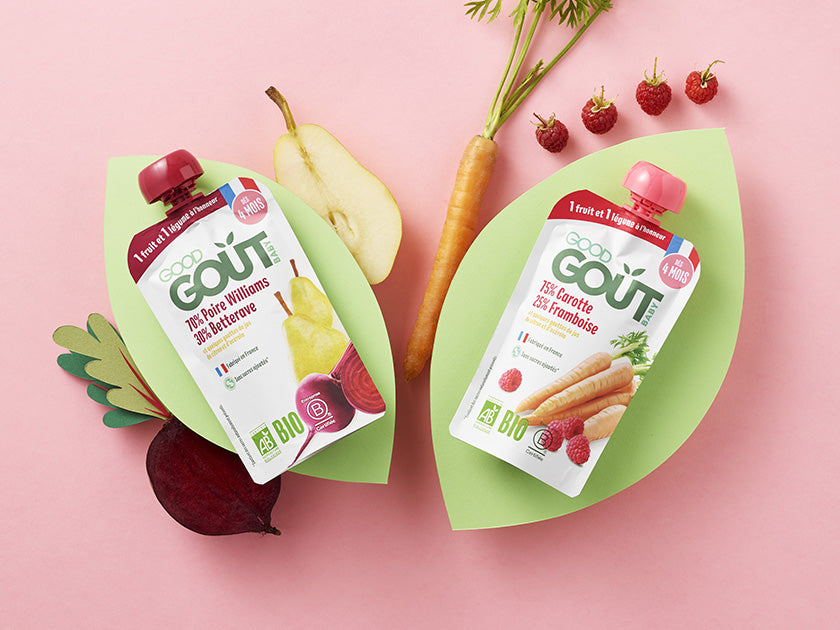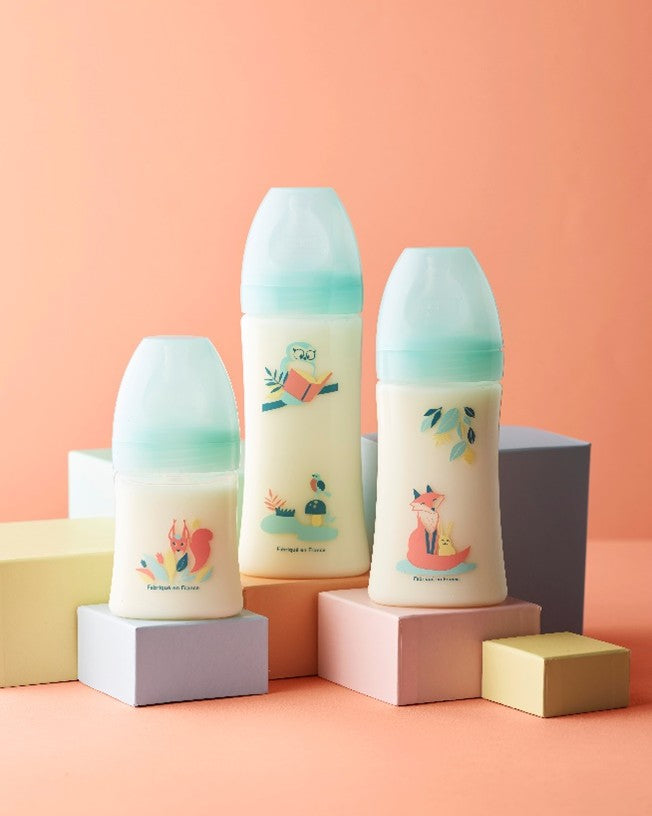Teething is a distant memory, and your child now has beautiful baby teeth. It's important to take good care of them to avoid conditions like baby bottle syndrome. If this name doesn't mean anything to you, it's completely normal! Often overlooked by young parents, this syndrome, also known as baby bottle tooth decay, is characterized by the early appearance of cavities in the baby teeth of young children. What are the causes? How can you spot it? How can you treat it, and especially how can you prevent it? At Biostime, we'll tell you everything about baby bottle syndrome!
Baby Bottle Syndrome: What is it?
Baby bottle syndrome is characterized by the early onset of multiple cavities in baby teeth. It generally occurs around the age of 3-4, but can also affect much younger children. Since the enamel on baby teeth is much thinner than on permanent teeth, they are therefore more vulnerable to cavities. Baby bottle syndrome can cause pain in children, infections, have consequences on the developing permanent teeth, or even interfere with chewing. This is why it is important to prevent it or, if necessary, treat it as early as possible.
What causes baby bottle syndrome?
We often hear that milk is responsible for bottle-feeding syndrome, which sometimes worries parents. Rest assured, it's not the culprit! What poses a problem is leaving a bottle of sugary liquid (fruit juice, sugary water, milk, etc.) available to your child throughout the day. Why? Because teeth are constantly bathed in a sugary environment, which allows the bacteria that cause cavities to develop and proliferate at high speed!
Children most affected by this syndrome are those who take a sugary bottle just before going to sleep. The reason? The amount of saliva, which plays a protective role against cavities(1), decreases while sleeping and the teeth are less protected against the acid attacks of sugar.
How to spot baby bottle syndrome?
At an early stage, only the expert eye of a dentist can detect baby bottle tooth decay. If the condition has already progressed, several signs can put you on the right track:
- Stains appear on the teeth. It is usually the upper teeth that are affected first, between the canines;
- The color of the teeth changes to become brownish;
- Demineralization of enamel makes teeth more fragile: they can break more easily;
- The child expresses pain when eating.
How to treat baby bottle syndrome?
Dental care is essential. Treatment will include dental care to stop the progression of cavities, as well as basic treatment and the implementation of hygiene and dietary measures.
How to prevent baby bottle syndrome?
The good news is that it is possible to prevent this bottle syndrome, simply by adopting a few good habits.
- Get your child used to drinking water rather than sugary drinks, which are not recommended;
- Do not give a bottle of milk, fruit juice or sweetened water just before bedtime or naptime;
- Brush baby teeth, with a suitable brush and special toothpaste for children, twice a day³. This is the best way to establish a routine and good dental hygiene;
- Have regular dental check-ups from the moment the first tooth appears, in order to detect any problems as early as possible and to get your child used to the dentist.
To your testimonies!
Are you familiar with baby bottle syndrome? Has your dentist ever told you about it? Share your experiences or questions on our Instagram @biostimefr or at contact@biostime.fr . We look forward to hearing from you!
- Tungare S, Paranjpe AG. Early Childhood Caries. In: StatPearls. StatPearls Publishing, Treasure Island (FL); 2021. PMID: 30570970.
- Marie Theillaud. Early childhood caries: the perspective of midwives, pediatric nurses, and childcare assistants in the Aquitaine-Poitou-Charentes-Limousin region. Surgery. 2016. ffdumas-01285427f
- Madrid C, Abarca M et al. Baby bottle tooth decay: a pebble in the health shoe. Rev Med Suisse 2012; 8:764-768
- Hallot I. Early childhood professionals: everything you need to know about baby bottle syndrome or early childhood tooth decay. 2020. https://lesprosdelapetiteenfance.fr/bebes-enfants/sante-prevention/fiche-maladies-et-petits-maux/tout-savoir-sur-le-syndrome-du-biberon-ou-carie-precoce-de-lenfant
- UFSBD. [Online] Babies - Children. [Accessed 04/26/2022] Available: https://www.ufsbd.fr/espace-grand-public/votre-sante-bucco-dentaire/bebes-enfants/#:~:text=The UFSBD recommends this for birthdays and regularly for each year.&text=Baby teeth from 6 months
- Alazmah AJ Contemp Dent Pract 2017;18(8):732-737.
(1)MOUTON C, ROBERT JC (1994b). Oral bacteriology. Masson ed. Paris.




